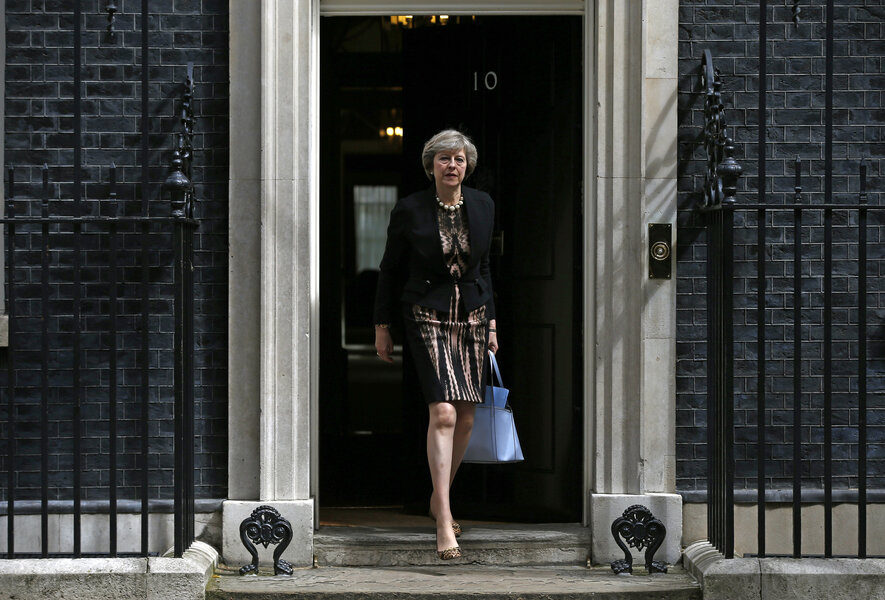Opinion: The fatal flaw behind Snooper's Charter
Loading...
Britons are just beginning to understand the full consequences of their country's decision to exit the European Union. And if they aren't careful, the Brexit vote will lead to far fewer civil liberties and could pave the way for Parliament to push through a massive expansion of government surveillance powers.
As much of Europe was focused on Brexit, British Home Secretary Theresa May's controversial Investigatory Powers Bill – otherwise known as "Snooper's Charter" – passed a second reading in the House of Lords. Now, Ms. May, who is set to become Britain's next prime minister, is looking to get the bill into law before the end of the year to replace outgoing EU legislation.
Going forward, Britain has an opportunity to build on the European foundations for privacy legislation that's actually appropriate for the modern Digital Age. Unfortunately, however, nothing from May's history suggests she has that intention. As it stands, her Snooper's Charter would open the door to indiscriminate data collection on all people in Britain and would essentially signal the end of their digital privacy.
The bill's supporters point to recent terrorist activity around the world as evidence for the "need" of increased public surveillance, but it's important to remember that privacy protections don't exist to shield the machinations of terrorists from our security agencies. Privacy rights protect the entire population.
If the government begins monitoring messaging apps and smartphones, for instance, criminals and terrorists will simply turn to other methods of communication that cannot be intercepted. Increased surveillance powers do not effectively restrict the practices of terrorists.
The core argument that privacy rights are at odds with security concerns is a fallacy. When governments limit people's privacy, they harm the general public, not criminals. Increased surveillance powers simply fail to effectively restrict terrorist actions.
Britons should take a strong stand against this bill. Sadly, however, just 12 percent of the British public say the bill has been sufficiently explained. That's because it’s far easier to muster support for the intrusive surveillance powers when the specifics of technology are ignored.
In short, the British government is relying on the fear of terrorist attacks and national security to garner support for its security initiatives.
The bill will "sacrifice the civil liberties of Britons everywhere on the altar of national security," as Privacy International Legal Director Carly Nyst eloquently said. But I would go even further. The tools of mass surveillance and the suspension of privacy rights are normally reserved for use by dictatorships.
If Britain goes down this road, it is setting a poor example to the world and showing that, in this respect, it is not above the regimes and belief systems it seeks to oppose.
Rafael Laguna is chief executive officer of Open-Xchange. Follow him on Twitter @rafbuff.







